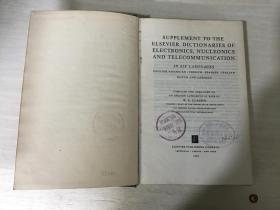随着科技的进步,电子词典日益普及,但传统印刷词典是否会被取代成为了一个热议的话题。电子词典具有便捷性、实时更新等优点,但也存在依赖电力、阅读体验可能不如纸质书籍等缺点。尽管电子词典在特定场合有其优势,但传统印刷词典仍具有不可替代的地位。电子词典与传统印刷词典各有优劣,未来两者将共存发展,电子词典不能完全取代传统印刷词典。
In today's rapidly advancing technological world, the use of electronic devices has become an integral part of our lives. This shift has also impacted the way we access information, including the dictionaries we use. While electronic dictionaries offer numerous advantages, it is crucial to consider whether they will entirely replace traditional print dictionaries.
Firstly, let's explore the benefits of electronic dictionaries. One of the most significant advantages is their convenience. Electronic dictionaries are easily accessible on smartphones, tablets, laptops, and other devices, making them readily available at any time and place. They also provide instant access to a wide range of information, including definitions, examples, synonyms, and antonyms, often with just a few taps or clicks. Additionally, many electronic dictionaries provide voice-based search functionality, which is particularly beneficial for those who struggle with reading or writing in a particular language.
Moreover, electronic dictionaries offer advanced features like cross-language translation, which allows users to translate words or phrases from one language to another. Some advanced dictionaries also provide real-time updates and new additions to words and phrases, ensuring users have access to the latest vocabulary and grammar. Furthermore, many electronic dictionaries come with built-in learning tools like quizzes, games, and interactive exercises that help users learn and retain information more effectively.
However, despite the numerous advantages of electronic dictionaries, there are several reasons why print dictionaries will continue to hold their value. Firstly, print dictionaries provide a physical object that can be touched and felt. The feel of flipping through pages and finding the word you are looking for provides a unique experience that cannot be replicated on a screen. Additionally, print dictionaries are portable and can be easily carried around without the need for batteries or an internet connection.
Moreover, print dictionaries are often more reliable in terms of accuracy and authenticity. While most electronic dictionaries provide accurate information, there is always a risk of errors or inaccuracies due to software updates or human error during data entry. Print dictionaries undergo rigorous editing and review processes, ensuring the highest level of accuracy and authenticity.
Furthermore, print dictionaries provide a traditional learning experience that cannot be replaced by technology. For many students and language learners, flipping through a dictionary and finding the meaning of a word is an integral part of their learning process. The act of looking up words in a dictionary helps them to reinforce their knowledge and understanding of languages.
In conclusion, while electronic dictionaries offer numerous advantages and are becoming increasingly popular, it is unlikely that they will completely replace traditional print dictionaries. Both have their own unique benefits and cater to different user needs. Electronic dictionaries offer convenience and advanced features, while print dictionaries provide reliability, authenticity, and a traditional learning experience. Therefore, it is likely that both will coexist in the future, catering to different user preferences and needs.
So, the answer to the question "Will electronic dictionaries replace traditional print dictionaries?" is a nuanced one. While electronic dictionaries are here to stay and offer numerous advantages, they will not entirely replace print dictionaries due to their unique benefits and the preferences of many users.




 京公网安备11000000000001号
京公网安备11000000000001号 京ICP备11000001号
京ICP备11000001号
还没有评论,来说两句吧...